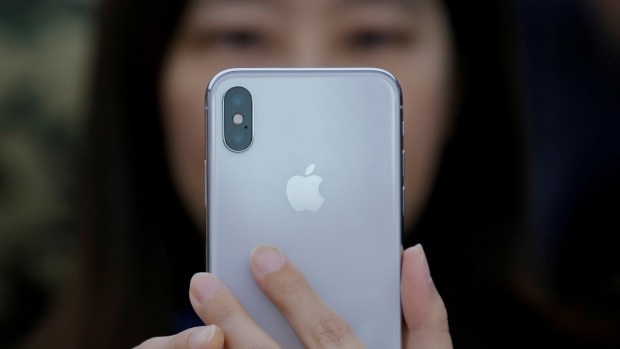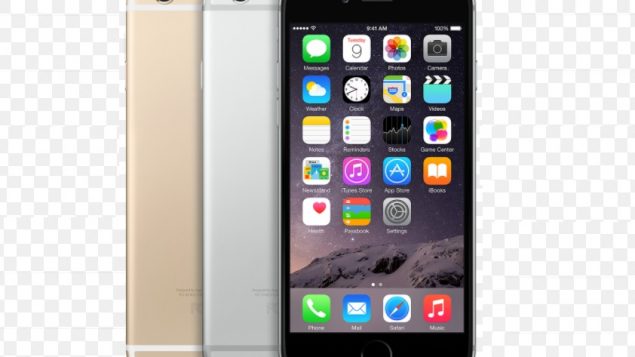A class action lawsuit was filed in Ontario Superior Court against Apple on Friday February 23.
The Ontario-based legal action joins over 40 other lawsuits against the high-tech giant.
It alleges that the company deliberately slowed the functioning of several models of iPhone in a process known as “throttling” or slowing down the functioning of the phone’s operating system.
The claims allege the slowing of iPhone models, 6, 6 Plus, 6s, 6s Plus, SE, 7, and 7 Plus, was to encourage owners to upgrade to newer products.

A woman uses an iPhone X during a presentation for the media in Beijing, China in 2017. In December that year, the firm acknowledged that the company does take some measures to reduce power demands — which can have the effect of slowing the processor — when a phone’s battery is having trouble supplying the peak current that the processor demands. PHOTO: Thomas Peter/Reuters
In a CNW press release, Joel Rochon, partner at Rochon Genova LLP, who represents members of the class-action said, “By intentionally substantially slowing iPhones, Apple not only interfered with users’ personal property, but they did so while keeping consumers totally the dark. Being the dominant smartphone company in Canada and around the world, Apple should not only know better, but must be held accountable—especially where it is alleged they substantially slowed iPhones and then encouraged customers to spend money on upgraded products.”
The class-action lawsuit alleges Apple’s actions violated Canada’s Consumer Protection Act legislation.
A participant in the Ontario class-action, Cherif Saleh, said in the release that he downloaded the update but then noticed his phone becoming “painfully slow” adding, “”Apple support advised me to ‘go to the Apple Store’ to buy a new phone—this sort of deceitful behaviour from Apple is totally unacceptable.”
The claim alleges that iPhone software updates were provided under the pretense that the updates were necessary to deliver enhanced security and performance but in reality the suit alleges the updates allowed Apple to slow down the phones performance. Apparently performance was linked to battery health, and that as the battery aged, performance lagged, something that would not normally occur.
The suit alleges that Apple phone users were never advised of the practice, never consented, never allowed to opt out.
The practice apparently began in 2016, but only came to light in December 2017 during a study by John Poole at Primate Labs.
None of the allegations have been proven in court, although Apple has admitted to intentionally slowing iPhones through its iOS 10.2.1, 10.3, and 11.2 updates.
additional information -sources







For reasons beyond our control, and for an undetermined period of time, our comment section is now closed. However, our social networks remain open to your contributions.